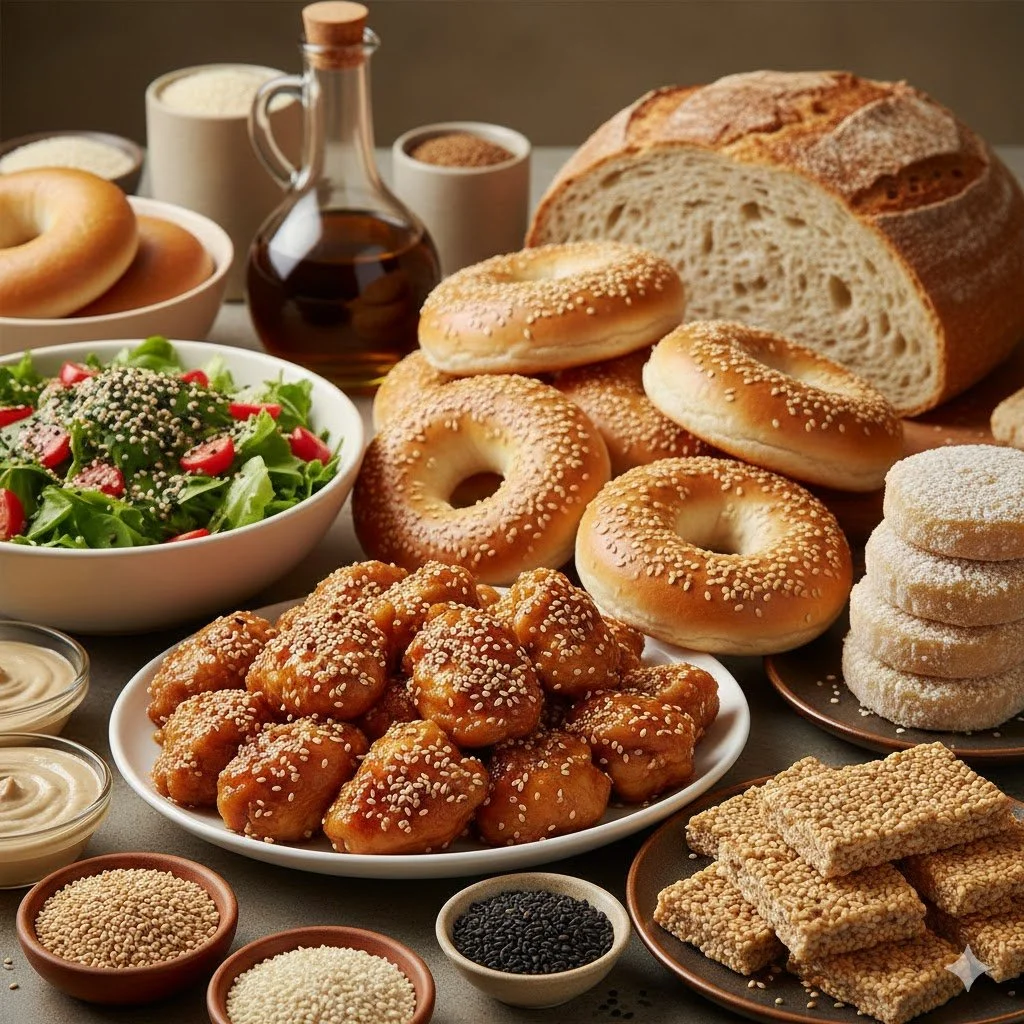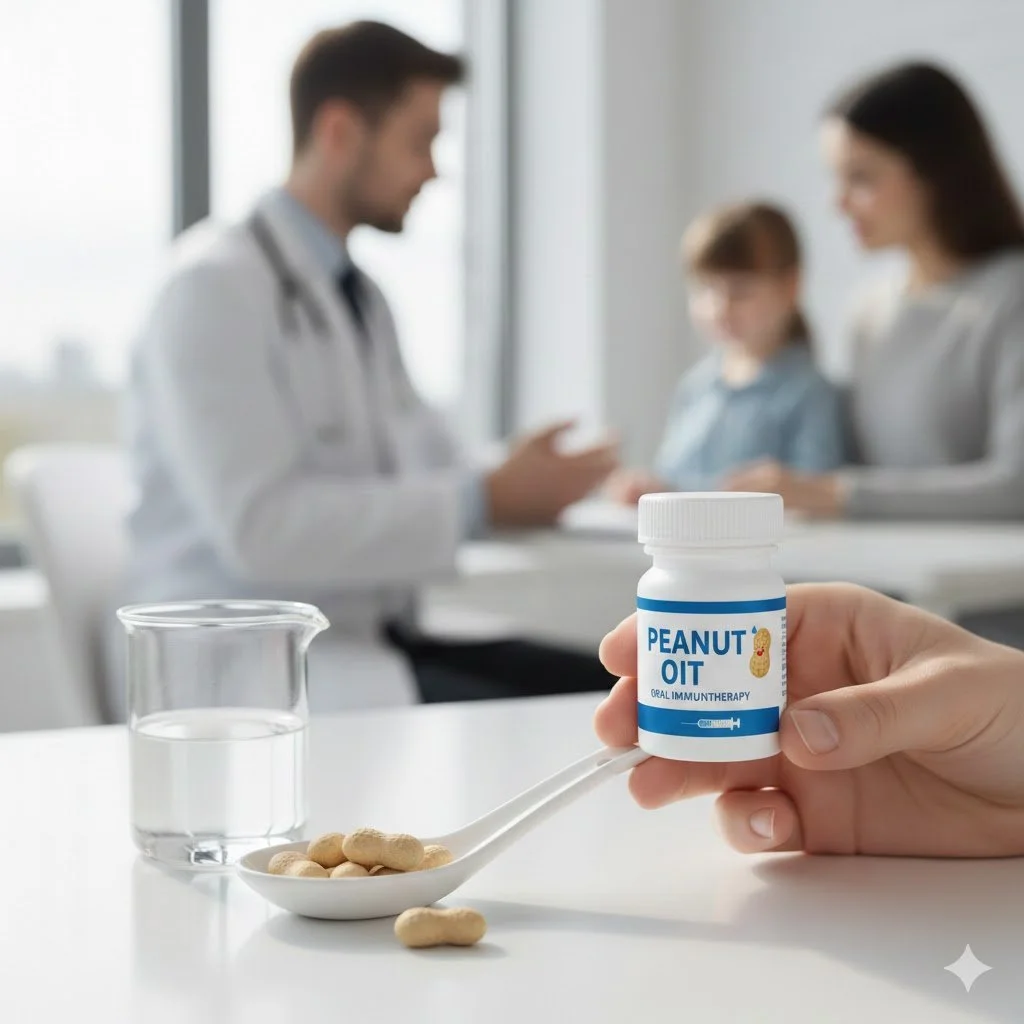A Paediatric Allergist’s Guide to Baby Poo
Baby Poop: What's Normal, What’s Not — Insights from a Paediatric Allergist
Baby poop is one of the most common concerns new parents bring up in our London Allergy Consultants clinics — and for good reason. It varies widely and can seem alarming if you're not sure what’s typical. This guide to baby poo aims to help parents understand what’s normal, when to seek advice, and how poop may relate to health, including allergies.
Introduction: Why Baby Poop Matters
As a paediatric allergist, one of the most common – and often surprising – topics I discuss with parents is their baby’s poop. While it might seem strange, observing a baby’s bowel habits provides a valuable window into their overall health. From colour and texture to frequency and smell, every nappy offers insights into what’s happening in your baby’s gut.
Thanks to smartphones, I frequently receive photos from concerned parents, often filed away in digital albums labelled “poop photos”. And while that might seem excessive, these images can be genuinely helpful in understanding whether something is normal or a potential sign of an underlying issue.
It’s worth noting from the start that newborn poop variations, on their own, very rarely lead to a diagnosis of an IgE-mediated allergy. When allergies are involved, poop irregularities are typically accompanied by other symptoms: hives, vomiting, food refusal, rashes, or even anaphylaxis. In such cases, we may suggest oral food and drug challenges or consult a paediatric allergy specialist. Unique and particularly offensive smelling poo is alos not diagnostic of any pathology and reflects the changeing bacterial ‘zoo’ in your babies gut, which is living matter feeding on the same foods you feed your baby.
Still, having a medically sound guide to baby poo helps distinguish between what’s normal and what might need further assessment.
The Evolution of Baby Poop — What’s Normal at Each Stage
Understanding what to expect from baby poop at different developmental stages can reassure parents and help them spot true red flags.
The appearance of baby poop depends on age, feeding type, and gut microbiome development. During the first year, it’s normal to see variations in colour (yellow, green, brown) and texture (runny, seedy, pasty).
Babies have rapidly developing gut flora—more bacterial than human by cell count. According to NIH research, the infant microbiome is shaped by delivery method, feeding type, antibiotics, vaccines, and other factors.
No two babies will have exactly the same gut microbiome—or the same poop.
1.1 Newborns (First 48–72 Hours): Meconium
Your baby’s first stool is called meconium. It’s thick, sticky, black or very dark green, and tar-like in consistency. Meconium is composed of materials the baby ingested in utero, including amniotic fluid and skin cells.
It’s entirely normal and expected.
Babies typically pass meconium within the first 24–48 hours of life. If not, a doctor should be consulted.
Colostrum — your first breast milk — helps expel meconium faster.
External reference: NHS: Newborn poo
1.2 Breastfed Babies
Breastfed infants tend to have:
Yellow or mustard-coloured stools
A runny or seedy consistency
A mildly sweet smell
Some babies poop multiple times a day; others might go a few days without passing stool. After around six weeks, many healthy breastfed babies start pooping less frequently. This is completely normal as long as the baby is feeding well and gaining weight. Learn more about potential cow’s milk protein intolerance that can occasionally appear in exclusively breastfed infants. Breastfed infants tend to have stools with less offensive odour due to higher lactic acid and lower concentrations of volatile fatty acids and sulfur-containing gases, reflecting a gut microbiota dominated by bifidobacteria and lactobacilli.
1.3 Formula-Fed Babies
Compared to breastfed babies, formula-fed infants often have:
Firmer, pastier stools
Colours ranging from pale yellow to tan or greenish-brown
A more pungent odour - attributed to higher levels of putrefactive bacteria and increased production of H₂S and CH₃SH. The presence and concentration of these gases are influenced by feeding type, the infant's age, and the maturation of the gut microbiome.
Poop frequency is usually once a day, though skipping a day is not uncommon.
If formula-fed babies show signs of constipation or blood in their stools, allergy assessments may be needed. See our London food allergy testing services for early diagnosis.
1.4 Weaning & Solids (From ~4–6 Months)
Introducing solids changes baby poop dramatically:
Stools become thicker, darker, and more adult-like in smell.
Undigested bits of food (like sweetcorn, grape skins) are common.
Colour and texture can vary depending on diet.
Initially, babies may poop more frequently (3–5 times/day), which typically settles to once per day over time.
Explore our guide on oral food and drug challenges if your baby experiences ongoing digestive discomfort after introducing solids.
A Colour Guide to Baby Poop — What’s Normal and What’s Not
One of the most frequently asked questions from new parents is: “Is this poop normal?” The answer often depends on colour, which can reflect dietary changes, digestive development, hydration levels, or even medical conditions.
Below is a comprehensive guide to baby poo colours, incorporating clinical insights and references to help parents interpret what they’re seeing in the nappy.
| Colour | What It Might Mean |
|---|---|
| Black | In the first 1–3 days, this is typically meconium, which is normal. After that, black poop could indicate digested blood from internal bleeding or maternal nipple cracks in breastfed babies. Needs prompt medical evaluation. |
| Green | Often a result of iron-fortified formula, or transitional stools between meconium and mature digestion. In breastfed babies, green poop can also indicate foremilk-hindmilk imbalance. Usually harmless unless accompanied by other symptoms. |
| Yellow | Common in exclusively breastfed babies. Mustard-like, sometimes seedy, and typically soft. This is considered healthy and normal. |
| Brown | A normal colour for babies on formula or solids. Texture may vary from pasty to firm depending on diet and hydration. |
| White / Pale Grey | A red flag. White, chalky, or clay-like stool may indicate a bile duct obstruction (e.g., biliary atresia), a rare but serious liver condition. Needs urgent medical attention. |
| Red | Can be caused by anal fissures, small tears from constipation, or be a sign of cow’s milk protein allergy (non-IgE mediated colitis). Bright red streaks in mucus or stool require clinical evaluation. |
| Orange | Often diet-related (especially once solids are introduced). May result from orange-coloured vegetables like carrots or sweet potatoes. Usually not a concern. |
Mucus, Blood, and Texture Changes
Mucous streaks: These can appear like clear jelly or slime. If your baby is otherwise healthy, mucus alone is usually harmless.
Blood: Can indicate constipation, fissures, or an allergic colitis. This is particularly relevant when associated with exposure to cow’s milk.
Very watery stools: Could point to infection or lactose intolerance.
When to worry about mucus:
If it persists for more than 2 days, is accompanied by fever, vomiting, or discomfort, see a specialist. Learn more from our paediatric allergy services in London.
Poop Frequency — How Often is Too Often?
Some babies produce huge nappies, others go days without a bowel movement. Both can be normal. What matters is whether the baby is gaining weight and appears comfortable. The frequency of baby poop varies widely:
Newborns: May pass stool after every feed.
6+ weeks (breastfed): Can go several days without pooping.
Formula-fed infants: Typically once daily.
During illness or food changes: More frequent, looser stools are common.
Excessive pooping accompanied by poor weight gain, irritability, or signs of dehydration may indicate toddler diarrhoea or infection. See our post on the most common childhood food allergies.
Key Takeaways for Parents
Newborn poop and baby poop vary widely
Most changes are harmless and reflect diet, development, or microbiome shifts
Use this guide to baby poo as a general reference
If you’re concerned, trust your instincts and seek expert advice
Conclusion: Trust Your Instincts
There is a wide range of normal when it comes to baby poop. The colour, texture, frequency, and smell of your baby’s stool may change from day to day — and that’s often entirely fine.
But as a parent, your intuition is valuable. If something about your baby's poop or wellbeing feels “off”, don’t hesitate to seek guidance.
For concerns relating to allergies, digestion, or immune conditions in infants, our team at London Allergy Consultants is here to help.
Frequently Asked Questions
-
In the first few days of life, newborn poop is thick, sticky, and black or dark green — called meconium. After this, poop from breastfed babies turns yellow and runny, while formula-fed babies produce firmer, pale brown or greenish stools.
-
A healthy newborn may poop after every feed (6–10 times a day), but this varies. After about 6 weeks, breastfed babies may poop less frequently — sometimes just once every few days — and still be completely healthy.
-
Green baby poop is usually harmless. It may be due to:
Iron-fortified formula
Foremilk/hindmilk imbalance in breastfeeding
Diet changes
Viral illness
If green stool is accompanied by diarrhoea, fever, or blood, consult your GP. Learn more about food allergy testing
-
Mucus in baby poop can be normal, especially in early life or during teething. However, if it's persistent or combined with other symptoms like blood, vomiting, or fever, it may suggest an infection or allergy. Explore immunotherapy and allergy treatment options.
-
Strong-smelling baby poop becomes more common with formula feeding and the introduction of solid foods. It may also indicate an underlying intolerance or infection. A persistent foul smell with diarrhoea may suggest a toddler’s diarrhoea or a viral illness.
The metabolic byproducts of intestinal bacterial fermentation of undigested carbohydrates, proteins, and fats primarily cause the odour in babies' stool. The specific volatile compounds responsible for stool odour include hydrogen sulfide (H₂S), methanethiol (CH₃SH), and short-chain fatty acids, which are produced in varying amounts depending on the infant's diet and gut microbiota composition
-
After vaccinations, some babies may experience:
Temporary changes in stool frequency
Looser or greenish stools
This is usually a normal immune response. However, persistent diarrhoea or other systemic symptoms should be reviewed by your healthcare provider.
-
Seel medicl advice if:
No meconium within 48 hours of birth
Poor weight gain or faltering growth
White, red, or black stools (excluding beetroot or iron supplements)
Persistent diarrhoea that affects growth
Blood in stool, especially with cow’s milk exposure
Painful bowel movements or visible fissures
Severe rashes around the anus
Chalky white or very pale stools
Hard, pellet-like stools
Blood in the stool may be a sign of cow’s milk protein-induced colitis, which often resolves with dietary changes. Learn more about this via oral food challenge testing in the UK.description
Explore More with London Allergy Consultants
At London Allergy Consultants, we support families through every stage of allergy testing and treatment. Whether you're dealing with food sensitivities, eczema, hay fever, or asthma, our paediatric experts are here to help.
Concerned About Baby Poop or Allergy Symptoms?
Book an assessment or explore our paediatric services today.
London Allergy Consultants
London Allergy Consultants is a leading UK centre for diagnosing and treating food and airborne allergies in children and young people.








